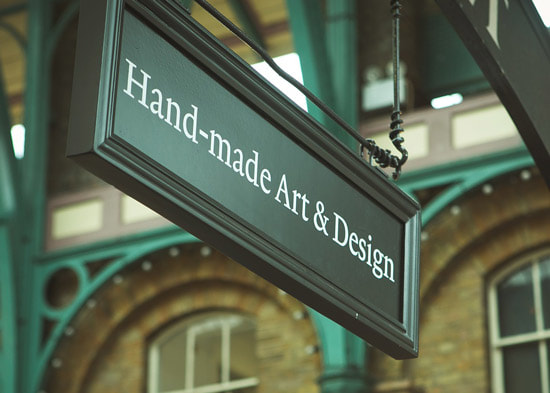- Home
- NEWS
-
PRACTICE
-
MARKETING
- How to write an Artist's Statement >
- How to write an Artist's Resume or CV >
- How to sign a painting, drawing or fine art print
- Business Cards for Artists
- How to write a press release for an artist
- The Private View Invitation
- Publicity for Juried Exhibitions
- Websites for Artists >
- Image & Video sizes for Social Media Sites
- How to be mobile-friendly
-
SELL ART
- FRAME ART
-
SHIP ART
-
COPYRIGHT
-
MONEY & TAX
- About + Help
- BANKING
Ways in which you can get work exhibited
other than with conventional art galleries - have changed over time.
LEARN ABOUT other gallery options for promoting your art
- and how to avoid scams and keep control on what it costs you.
other than with conventional art galleries - have changed over time.
LEARN ABOUT other gallery options for promoting your art
- and how to avoid scams and keep control on what it costs you.
|
This page covers:
|
Other alternatives for exhibitions
On other pages you can read about:
|
Banner Image: Gallery Hire - See Rosa Sepple sells 50+ paintings in 4 days!
CASE STUDY: Lachlan Goudie and Tim Benson rented space
at The Threadneedle Space at the Mall Galleries for a joint exhibition.
See A Threadneedle Space Exhibition for how the arrangement worked.
at The Threadneedle Space at the Mall Galleries for a joint exhibition.
See A Threadneedle Space Exhibition for how the arrangement worked.
What is "due diligence"?
|
Three reasons why you need to take due diligence of art galleries/fairs/events seriously
Before making any financial commitment - to a gallery or an art fair or any other event - make sure you ask some questions to find out whether or not you might be wasting your money and/or damaging your reputation. |
REFERENCE:
Due diligence is an investigation of a business or person prior to signing a contract, or an act with a certain standard of care. It can be a legal obligation, but the term will more commonly apply to voluntary investigations. the relative opacity of the art market makes it a significant target of financial crimes. |
Checklist of questions
- 10 questions for artists to ask event organisers - These are the questions to consider if you're invited to participate in an event - an exhibition or fair - which aims to have artists with stands displaying their work.
- Art-related due diligence | Deloittes - Prevent financial crime and manage your reputation
Comparison: Vanity Gallery vs Artists' Co-operative vs Rental Space
|
Rental Space - pay to exhibit
|
Artists' Co-Operative
|
Vanity Gallery - Rent a wall
|
Self-Promotion - how to run your own exhibition with integrity
Paying for your own marketing used to be really frowned on - but times have changed.
In the past an artist might not be considered to be credible if they were not taken on by a gallery who judged their art and found it worthy of putting on their walls
Today, marketing art is no longer limited to the conventional and traditional methods e.g. bricks and mortar galleries.
Art Marketing practices - have changed due to:
In the past an artist might not be considered to be credible if they were not taken on by a gallery who judged their art and found it worthy of putting on their walls
Today, marketing art is no longer limited to the conventional and traditional methods e.g. bricks and mortar galleries.
Art Marketing practices - have changed due to:
- ecommerce for art - a lot of art is now bought online
- artists can sell art without being dependent on galleries. They can now exercise much more independence and control over marketing and exhibiting their art
- the closure of a lot of art galleries due to economic difficulties and a failure to get to grips with the internet. Many artists were 'stung' as galleries closed. Some were left with their artwork behind locked doors and a closed sign.
The critical difference with Self-Promotion is that the artist is in charge - and is not being taken advantage of.
The artist who promotes their own work by arranging their own exhibition:
The artist who promotes their own work by arranging their own exhibition:
- makes the running and weighs up the pros and cons of alternative options for marketing their art
- determines which spaces are acceptable to them
- decides the length of the rental and exhibition
- finances the rental for the space and all other costs associated with the exhibition
- organises all the marketing, the catalogue, the Private View and Press Releases - and pays for it
- organises and hangs the exhibition and take down
- stewards the exhibition and processes the sales (depending on the nature of the rental agreement)
- receives all the income from sales - without a deduction for commission
The options for exhibiting your art
|
Many artists have explored ways of making themselves more independent of conventional channels. Beside promoting themselves - via websites, blogs, ecommerce and holding open studios - one of the ways they can promote their art is to hire space at a reputable art fair/market or gallery and hold an exhibition.
Options for holding your own exhibition include:
|
The outcome of self-promotion can be both high risk AND highly profitable
Direct sales involve a lot more work and a willingness to invest in your art - but direct sales with no commission can be very rewarding as well as risky:
General Reference:
|
Reputable galleries to rent in London
Two galleries in London that hire space to reputable art groups and artists are the Mall Galleries, the Bankside Gallery and the Menier Gallery. The first two are homes to prestigious National Art Societies and artists renting space are often members of the art societies. The Menier Gallery also has art society exhibitions by those not associated with either of the first two galleries.
- Mall Galleries - venue hire (See A Threadneedle Space Exhibition for details of one such exhibition)
- Bankside Gallery - exhibition hire (PDF)
- Menier Gallery - Gallery Hire
ADVERTISEMENTS
|
|
|
The PopUP Show / Art Gallery
(Pop up Shops) are becoming extremely popular because they allow immense flexibility, while not requiring a large commitment of time and money. A pop-up gallery or store can be a great option for retailers, boutique shops, local artists and designers |
Pop up shops are temporary retail spaces, used by tenants who need a short, flexible hire instead of a traditional long lease. Vacant high street shops provide space to test an idea, launch a business or product, reach new customers and build brand awareness. |
A Pop Up Show / Gallery / Shop - also known as 'flash retailing' is a great way for an artist to:
- get your feet wet in terms of finding out how to run a promotional space/event
- run an art event or gallery for a short period without long term commitments
- provide a space to which you can invite your target audience and/or those you want to connect and network with
|
You can use vacant commercial premises on very flexible terms.
First you need to decide what you want to do....
|
What you need:
|
|
REFERENCE:
What is a pop up shop?
How to run a Pop Up Space
|
How to find a Pop Up Space (UK)
How to find a Pop Up Space (USA)
|
Pop Up Business For Dummies by Dan Thompson
|
Rated an average of 4.5 out of 5 stars by 22 UK based customers
Lots of practical pointers to the process of what you need to do to run a successful pop up event - including art shows or art galleries This book was written by the Empty Shops Network founder Dan Thompson and published in 2012. |
Paperback: 264 pages
Publisher: John Wiley & Sons; 1 edition (5 Oct. 2012) Also available as Kindle Pop Up Business For Dummies
Pop-Up Business For Dummies
|
ABOUT ART BUSINESS INFO. FOR ARTISTS
This website aims to provide a compendium of resources about the art business for artists. Please read "PLEASE NOTE"
It helps artists learn how to do better at being business-like, marketing and selling their art and looking after their financial security.
This website aims to provide a compendium of resources about the art business for artists. Please read "PLEASE NOTE"
It helps artists learn how to do better at being business-like, marketing and selling their art and looking after their financial security.
|
Copyright: 2015-2021 Katherine Tyrrell | Making A Mark Publications
- all rights reserved If you've got any suggestions for what you'd like to see on this website please send me your suggestion
|
PLEASE NOTE:
1) Content and the law change all the time. It's impossible to keep up with it if you're not working on the topic full time. 2) I research topics carefully. However, I am totally unable to warrant that ANY and/or ALL information is
|
3) Hence all information I provide comes without any LIABILITY whatsoever to you for any choices you make.
4) This website is FREE FOR YOU but not for me. Links to books are Amazon Affiliate links. Buying a book via this website means I get a very small payment which helps to fund and maintain this website. .I much appreciate any support your provide. Adverts are provided by Google AdSense - but the adverts do not mean I endorse the advertiser. |
- Home
- NEWS
-
PRACTICE
-
MARKETING
- How to write an Artist's Statement >
- How to write an Artist's Resume or CV >
- How to sign a painting, drawing or fine art print
- Business Cards for Artists
- How to write a press release for an artist
- The Private View Invitation
- Publicity for Juried Exhibitions
- Websites for Artists >
- Image & Video sizes for Social Media Sites
- How to be mobile-friendly
-
SELL ART
- FRAME ART
-
SHIP ART
-
COPYRIGHT
-
MONEY & TAX
- About + Help
- BANKING



